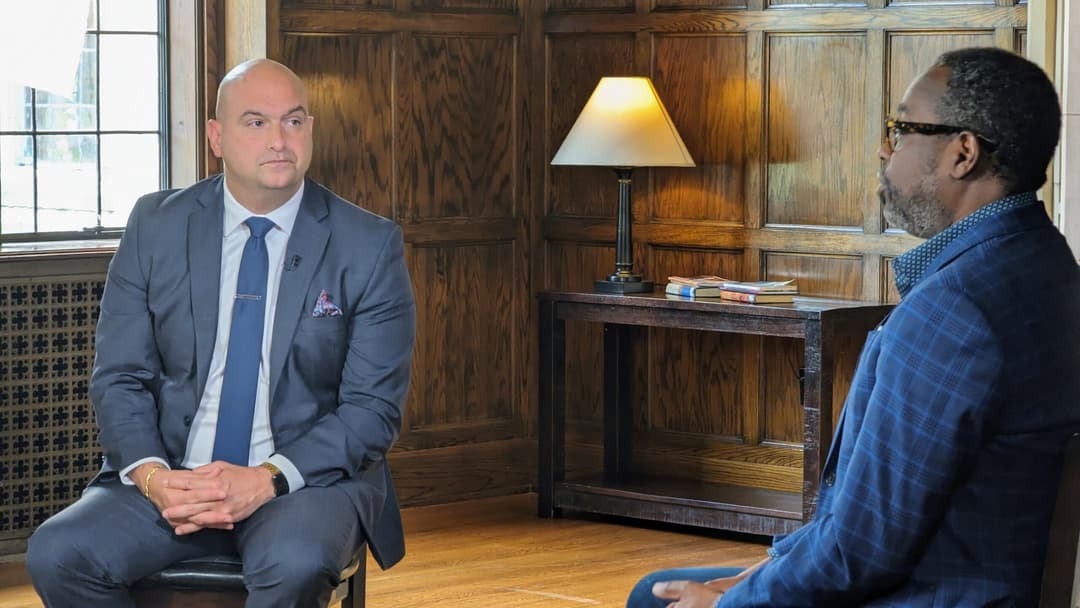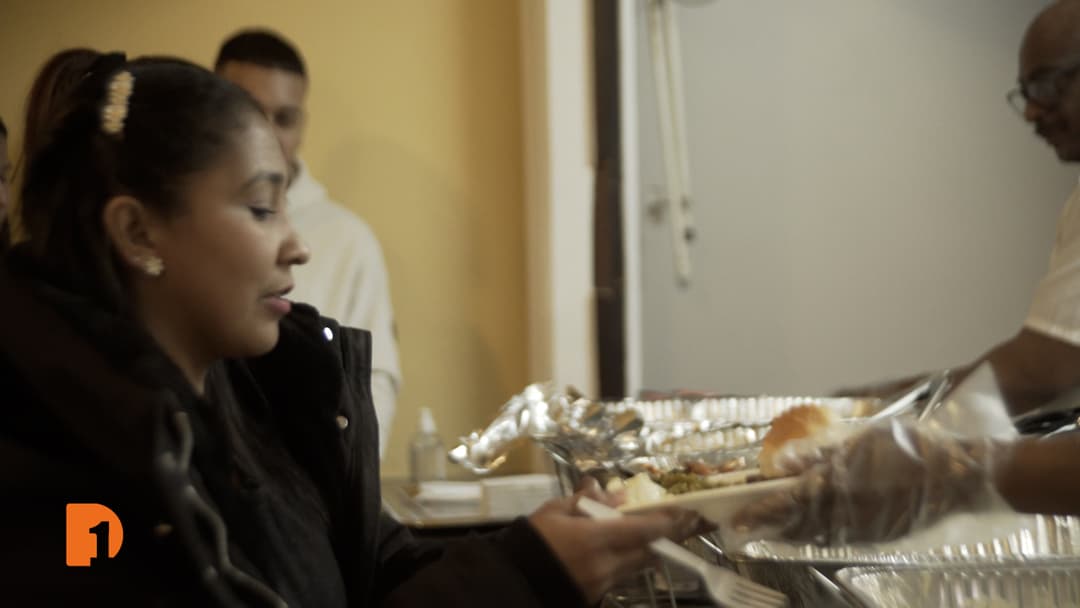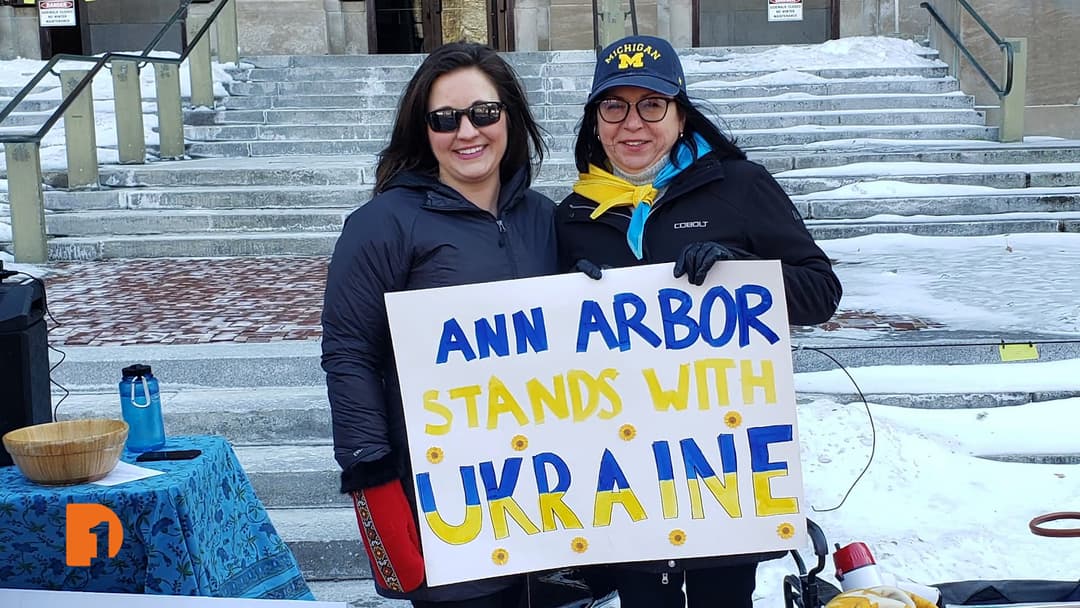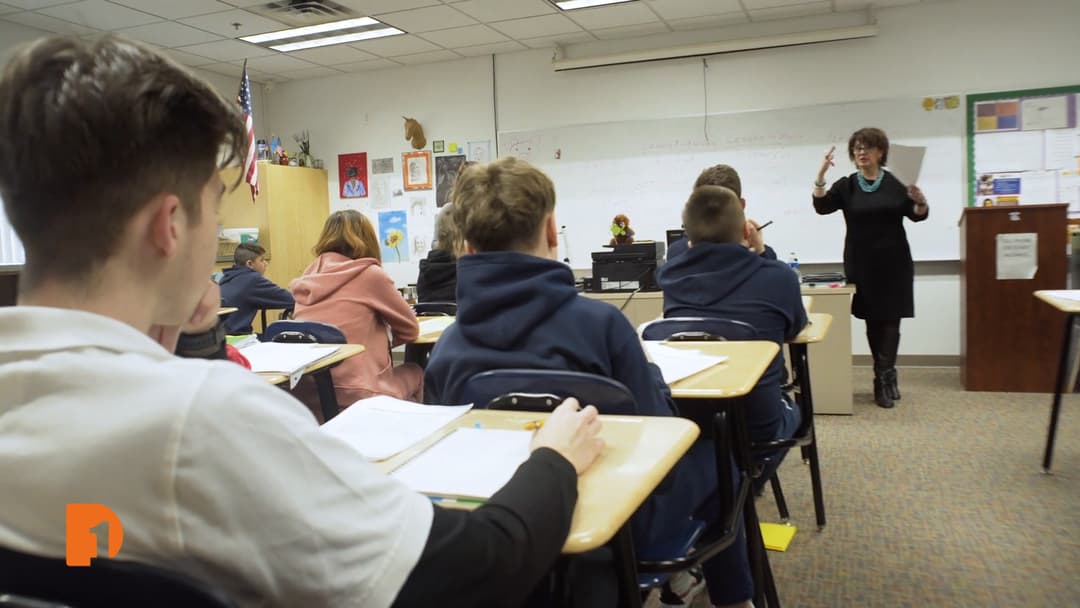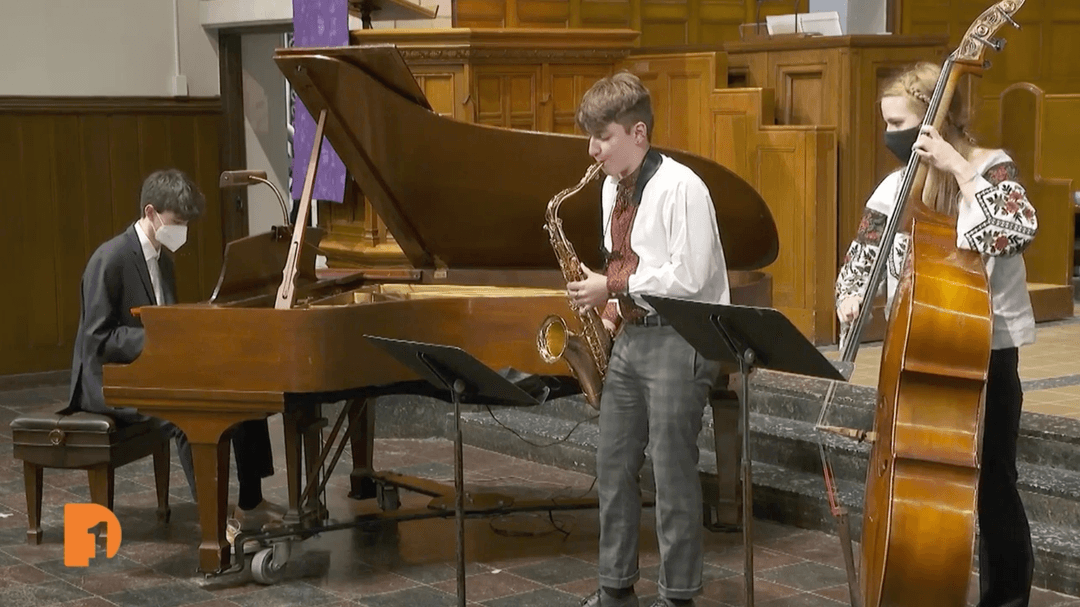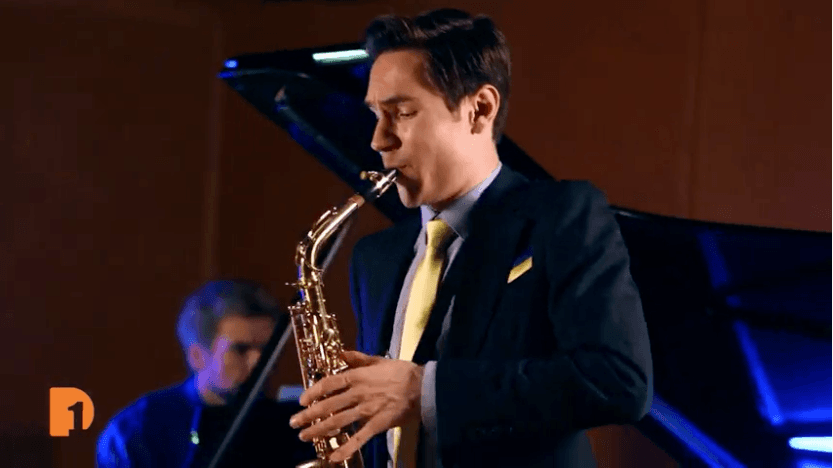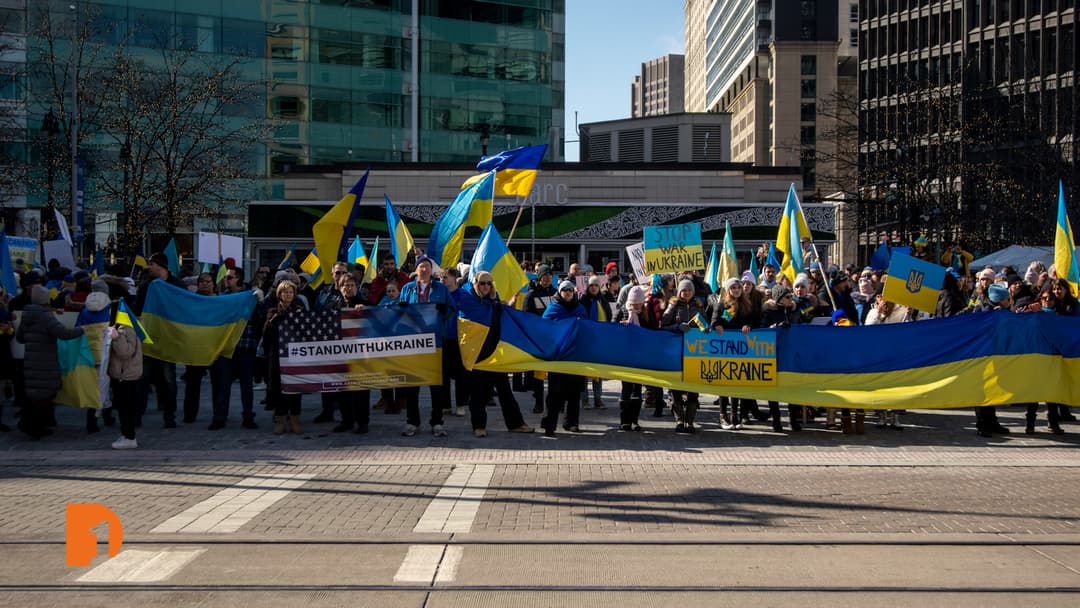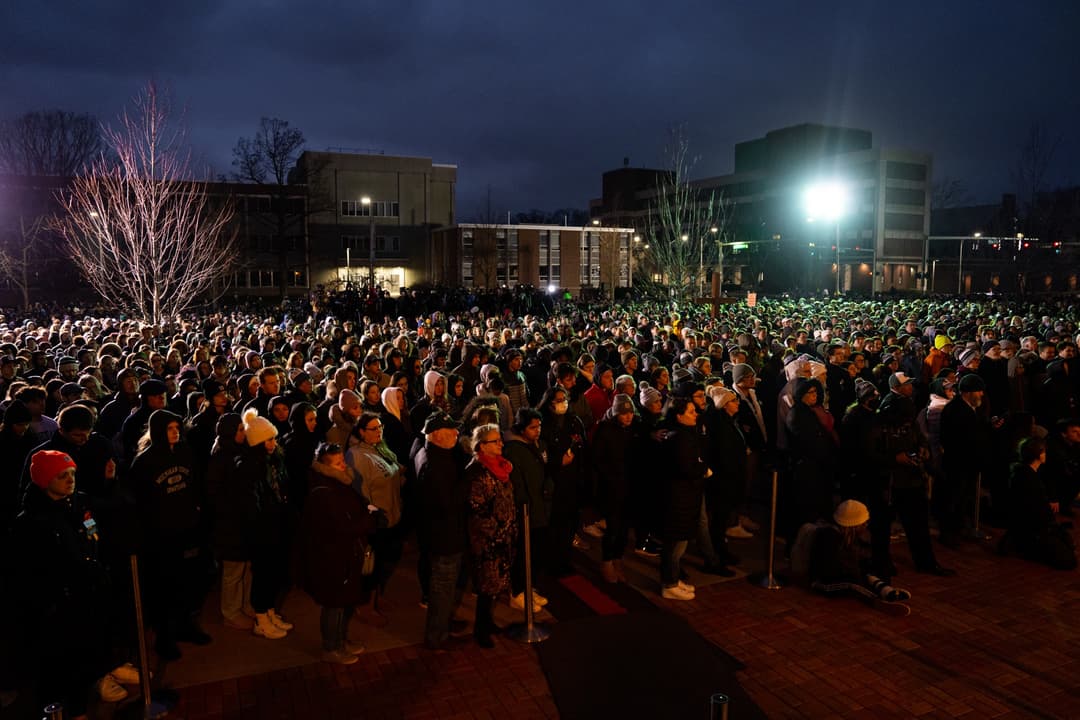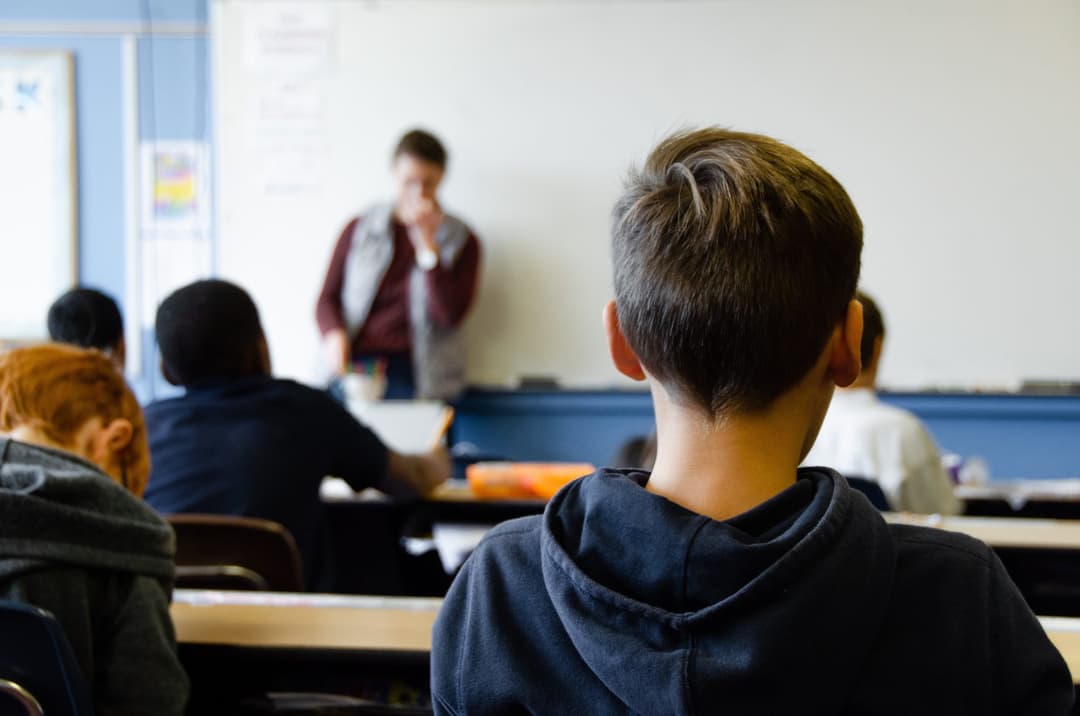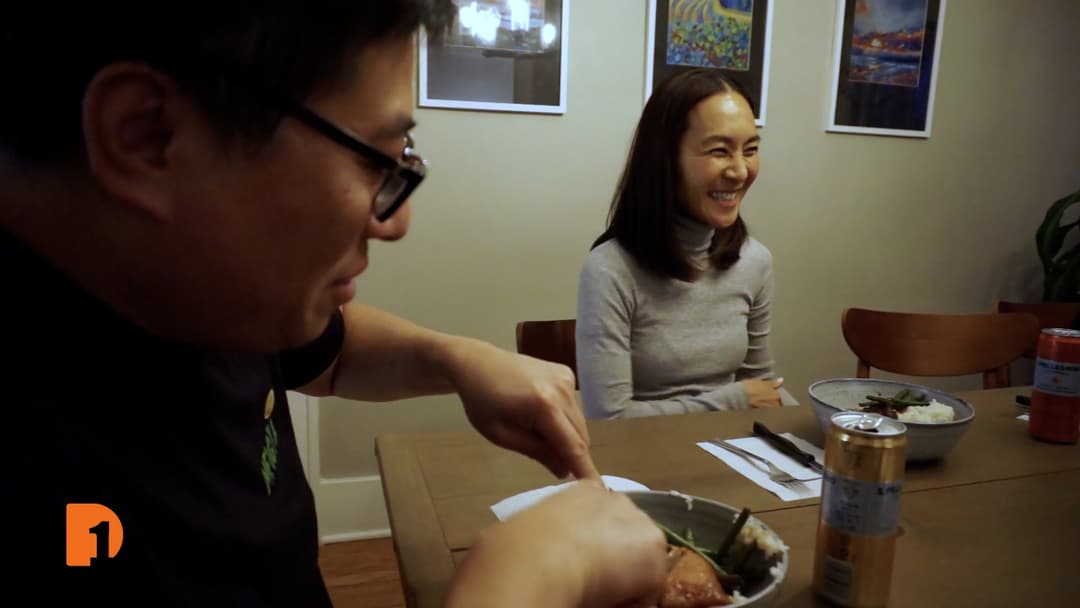Fostering refugees: Ukrainian families find new home with metro Detroit Armenian community
Feb 23, 2023
It’s been one year since Russian military forces invaded Ukraine, and several Ukrainian families have flocked to the United States to seek refuge. The nonprofit social services agency Samaritas has logged more than 600 case files for Ukrainians who are resettling in metro Detroit, which has a large population of Ukrainian Americans on the city’s east side. As Ukrainian refugees settled into their new homes here, one educational community quickly opened its doors to receive and support them.
RELATED:
- University of Michigan Ukrainian, Russian music students organize benefit concert for Ukraine war
- Searching for truth in lies: Ukrainian-Americans react to Russia conflict, misinformation campaign
- Facing the music: Ukrainian quartet DakhaBrakha continues to speak out against Russian conflict
- Ukrainian kobzar Jurij Fedynskyj keeps Ukraine’s cultural history alive through music
Over the past year, more than 100 Ukrainian refugee students have arrived at the AGBU Alex and Marie Manoogian School, a K-12 school in Southfield that began in 1969 as an all-Armenian school and later transformed into a charter school open to all students. The school has also added three new ESL teachers to its roster to meet the needs of its new students.
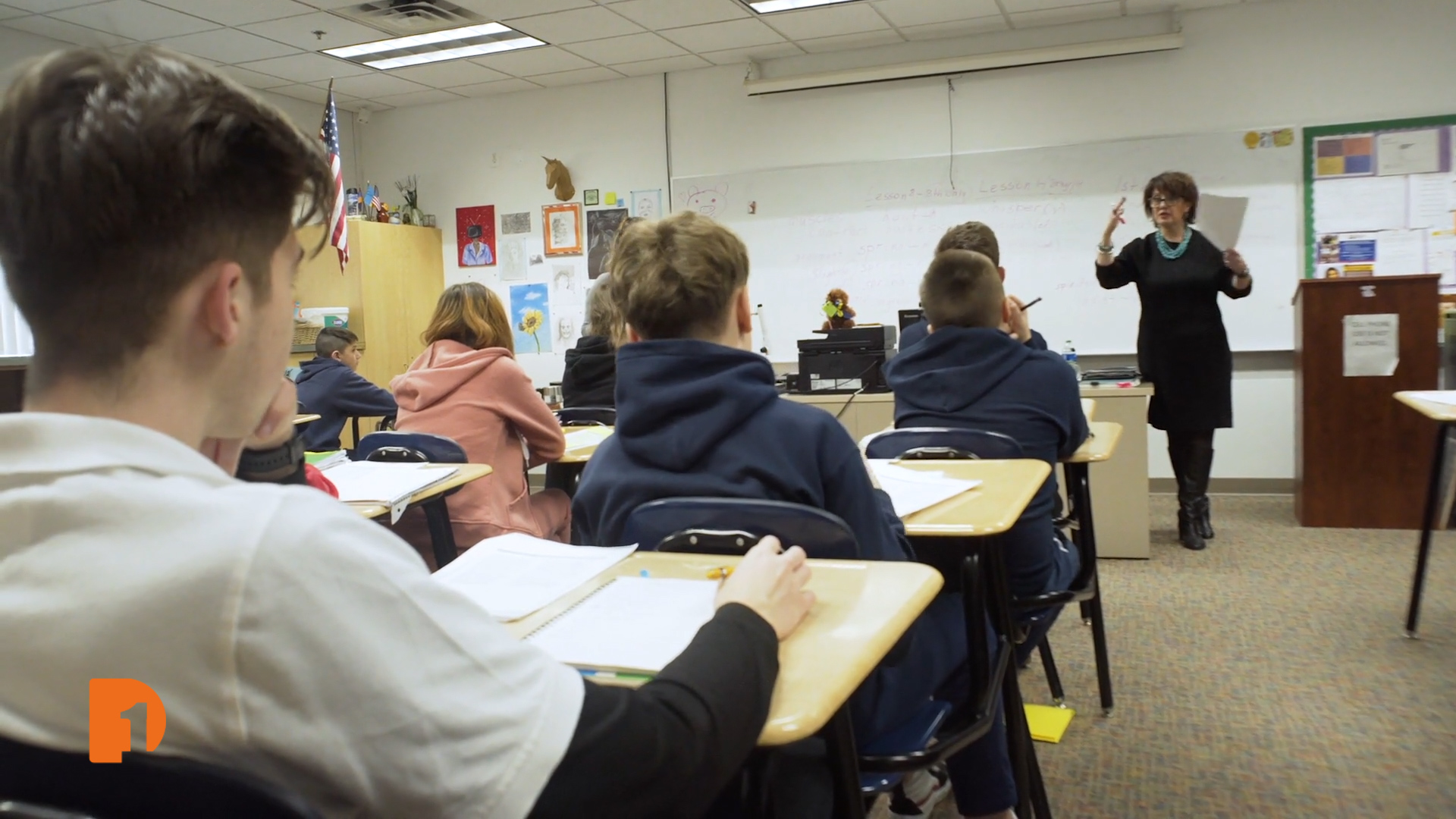
Despite the changes impacting the school and its new refugee students, the Armenian and Ukrainian communities have found a common bond with each other. One Detroit’s Bill Kubota sits down with students, teachers and administrators at the Manoogian School to learn about the common thread that connects these two communities throughout history and how some refugee students are responding to the war back home.
Full Transcript:
Liliana Masnytska, Case Manager, Samaritas: It’s so hard and complicated when you’re familiar with the situation. When you see everyday people tears, when people don’t have the place to leave, when they don’t have–when they don’t know how to survive, I mean.
Bill Kubota, Senior Producer, One Detroit: Liliana Masnytska, she left Ukraine after the Russians invaded Crimea in 2014. She got out with her children, but not much else.
Liliana Masnytska: That’s why I probably work now with refugees because I know how hard it is to get some paperwork, how to get medical insurance, how to apply for your work authorization.
Julian Klepach, Case Manager, Samaritas: A lot of things that we have to do, such as Social Security office, driver’s license that we have to help them get, it takes time. And we’re working to, you know, overcome these barriers and these bureaucratic stops to understand this whole new for everybody.
Liliana Masnytska: Like when you move to a new house and you don’t have furniture, you don’t have food, you don’t have nothing.
Julian Klepach: Just calm them down. We’ll come. We will help and just help translate and help them get acclimated to the customs.
Bill Kubota: In Metro Detroit, Masnyktska says, Samaritas has more than 600 case files for Ukrainians resettling here after the more recent Russian attacks. The Manoogian School in Southfield has been taking in a lot of refugee students.
Dr. Hosep Torossian, High School Principal, Manoogian School: The first group of students who landed here, it was a heartbreaking story, of course.
Bill Kubota: The AGBU Alex & Marie Manoogian School, a K-12, started in 1969.
Dr. Hosep Torossian: We were a private Armenian school up until 27 years ago when the school was transformed to a charter school, which opened its doors to the community at large.
Bill Kubota: Some of that community at large, Ukrainians. Ukrainian students have been here for some time, but the thinking was why not recruit some more?
Steve Grigorian, Board Member, Manoogian School: We knew we had a pocket of Ukrainian students and from a marketing perspective, this is last February.
Bill Kubota: The school targeted the East Side, Hamtramck, Warren, where many Ukrainian families live. But then…
Unknown Speaker: Russia has launched a large-scale military attack on a number of Ukrainian cities.
Bill Kubota: By March, a surge of Ukrainian students not from the east side, but Ukraine itself. More than 100 new arrivals, part of a total student body of 450. The schools at capacity.
Dr. Hosep Torossian: We have a faculty member, our senior ESL teacher, who is well-known in the Ukrainian community. She became the first point of contact.
Lilit Babloumian, Head ESL Teacher, Manoogian School: English, they all know that without English they cannot function here. So, that’s the main goal. And yes, we are trying, we are doing our best. It goes, I think it’s pretty good. And adverb means adding to the verb, right?
Bill Kubota: The schools added three more ESL teachers.
Dr. Hosep Torossian: Our hearts go out to the Ukrainian situation right now, any war. Armenians have experienced war for centuries.
Steve Grigorian: And if there’s anybody that would throw their doors wide open to the students because of our history, it’s going to be this school.
Bill Kubota: History, Armenians migrated to Ukraine centuries ago. Early last century, the Armenian genocide, the mass starvation of Ukrainians a decade and a half later. More recently, new bloodshed, the 2020 war involving Azerbaijan and the majority Armenian Republic of Artsakh.
Sonia Kelfeyan, Elementary and Middle School Principal, Manoogian School: It correlates the Armenian experience with Artsakh, yes. So, they can relate to it with our history. And the teachers do talk about it. The Armenian teachers do talk about it as well as the classroom teachers.
Bill Kubota: Today, Ruslan Kucherepa worries about his cousin in the war zone.
Ruslan Kucherepa, 10th Grade, Manoogian School: People die there and he’s still alive now, but it is hard to hear.
Bill Kubota: Are you keeping in contact?
Ruslan Kucherepa: My grandma and grandpa try to keep contact.
Alina Malynovska, 8th Grade, Manoogian School: My grandma is in Ukraine. I just–I try to call her every day, if I have the chance. And she stays in Ternopil, it’s like best part of Ukraine. Everything is good but there are a lot of sirens and planes. It’s really hard for me because I love her so much. I don’t know, I’m trying to communicate with them every day so they feel like that I’m with them.
Lilit Babloumian: Because we are small, we are capable of talking and making sure that their mental stability. Talking to parents, sometimes asking questions. And if we feel and notice something is not because a lot of these fathers are still in Ukraine and moms are here. Some families have been split and the kids go through awful times.
Dr. Hosep Torossian: Now, we don’t know if these students will stay here forever, for a few years, a few months, we don’t know. But honestly, we don’t care. We will do our best to accommodate them under the circumstances that we’re in right now.
Liliana Masnytska: The generation of our kids, it’s our Ukrainian future. I mean, it’s like the new generation of our country. How we call in Ukraine, it’s our new flowers. But I understand it’s better that they stay in warm house, better they have more to eat. They are going to know good English when they come back to Ukraine. It’s like a huge opportunity for refugee kids, but it’s a huge obstacles for the parents because I was in the same shoes and I know how it’s complicated.
Stay Connected:
Subscribe to One Detroit’s YouTube Channel & Don’t miss One Detroit Mondays and Thursdays at 7:30 p.m. on Detroit PBS, WTVS-Channel 56.
Catch the daily conversations on our website, Facebook, Twitter @DPTVOneDetroit, and Instagram @One.Detroit
View Past Episodes >
Watch One Detroit every Monday and Thursday at 7:30 p.m. ET on Detroit Public TV on Detroit Public TV, WTVS-Channel 56.
Stay Connected
Subscribe to One Detroit’s YouTube Channel and don’t miss One Detroit on Thursdays at 7:30 p.m. and Sundays at 9 a.m. on Detroit PBS, WTVS-Channel 56.
Catch the daily conversations on our website, Facebook, Twitter @OneDetroit_PBS, and Instagram @One.Detroit
Related Posts
Leave a Reply
Your email address will not be published. Required fields are marked*


